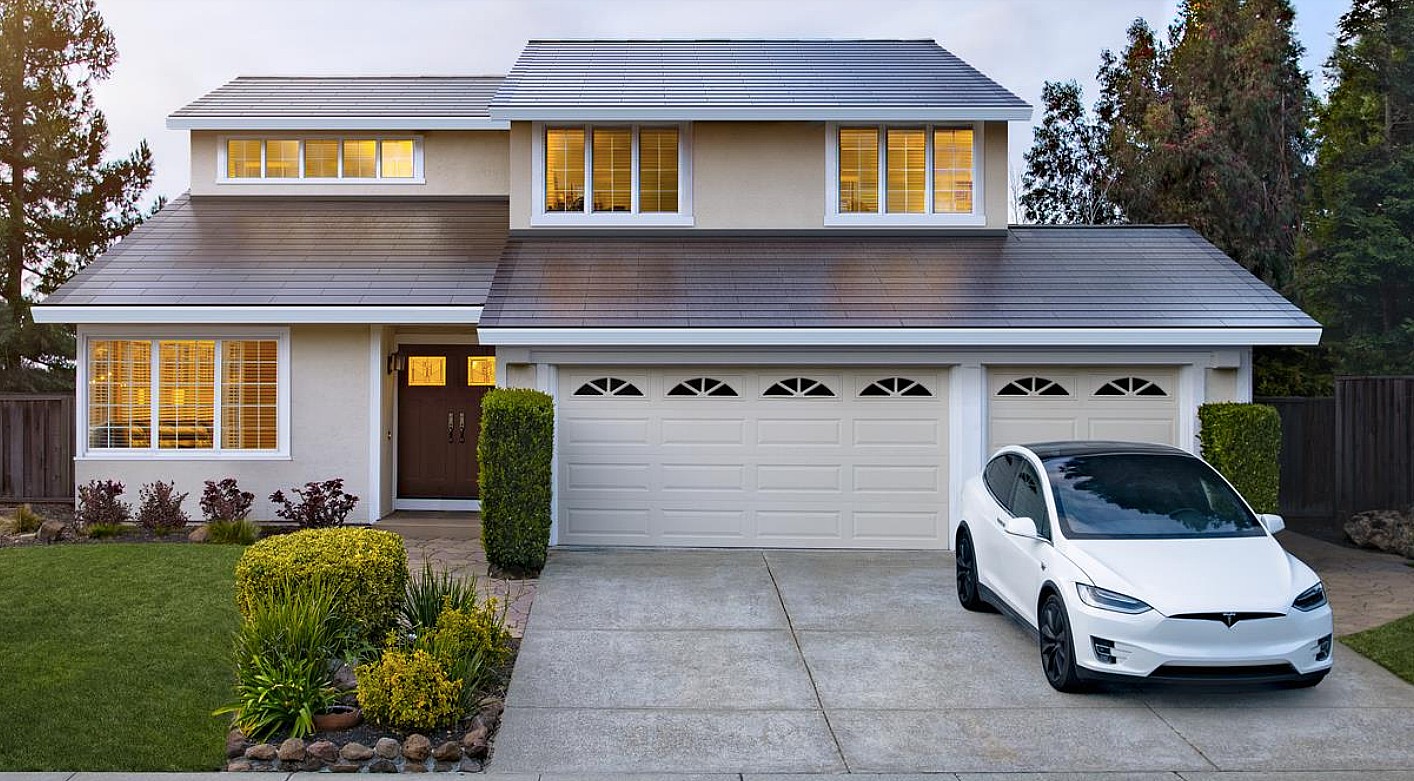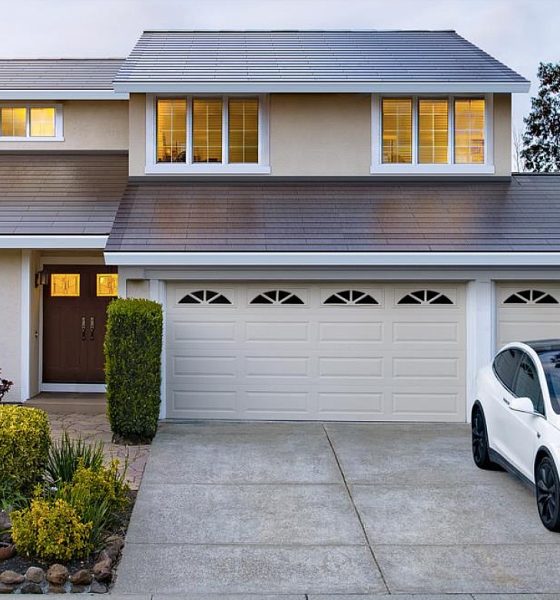Just recently, Tesla rolled out a subtle update to its official website. After welcoming the site’s visitors with its electric vehicle lineup for years, tesla.com now primarily showcases Tesla Energy products, represented by a header image featuring a home with solar panels and Powerwall batteries. The update was simple, but the company’s message was clear: Tesla Energy’s time to shine in the spotlight as arrived. The time to push battery storage and solar solutions into the mainstream market is now.
Tesla is known more as an electric vehicle manufacturer, and for good reason. The company owes its existence to the original Tesla Roadster, a small sports car that was built on a Lotus platform that broke mainstream conventions about what an electric car could be like. But the company’s mission as per CEO Elon Musk has always been clear: Tesla exists to accelerate the world’s transition to sustainability. And it just so happens that electric vehicles cannot get the job done alone.
During a previous interview with Teslarati, Robert Bollinger, the founder of Bollinger Motors, a maker of off-road, rough-and-tough EV trucks and pickups, stated that any new automaker today has to be focused on electric cars. And he’s absolutely right. It may not be universally acknowledged outright, but the automotive industry knows that electric vehicles are the way to go in order to survive the future. Full stop.
It might be a strange idea today, but there was once a time when electric vehicles were not taken seriously by the motoring industry at all. With the Model S, Model 3, Model X, and now the Model Y, Tesla has essentially pulled the automotive sector towards electric transportation kicking and screaming. After years of empty EV promises, unnecessarily complex electric concept cars that will never get mass produced, and sweet-talking statements about commitments to a zero-emissions future, legacy auto simply cannot stand by and maintain its old stance. It simply cannot afford to if it wants to survive.
The same has not happened yet to the utility sector. Renewables are on the rise, and climate action awareness is gaining ground. But overall, the idea of utilities being powered by renewables and giant batteries is still widely considered as niche ideas for now. The fossil fuel industry is still very prominent in the energy sector, and thus, the battle for sustainability on this front is only just beginning — and it will be very, very difficult. If the automotive sector was pulled into EVs kicking and screaming, the energy sector, which is dominated by the fossil fuel industry, will likely fight even harder.
This is something that supporters of Tesla and those that follow the company have to keep in mind. Tesla has struggled with misinformation for over a decade thanks to short-sellers and skeptics who simply don’t believe in electric cars or the company’s specific approach to EVs. It would thus be wise to brace for the upcoming challenges that will be brought about by Tesla quite literally taking on the fossil fuel industry, and in an arena that it has dominated for a very long time.
Fortunately, Tesla is now a mature company with an equally mature technology. Its battery tech is also second to none, as evidenced by the upcoming announcements for its highly-speculated million-mile battery. These, together with the support of an electric car business that is now the largest in the automotive industry by market cap, may very well give Tesla Energy enough power to disrupt, and eventually transition, the utility sector towards sustainability.

Energy
Tesla Powerwall distribution expands in Australia
Inventory is expected to arrive in late February and official sales are expected to start mid-March 2026.
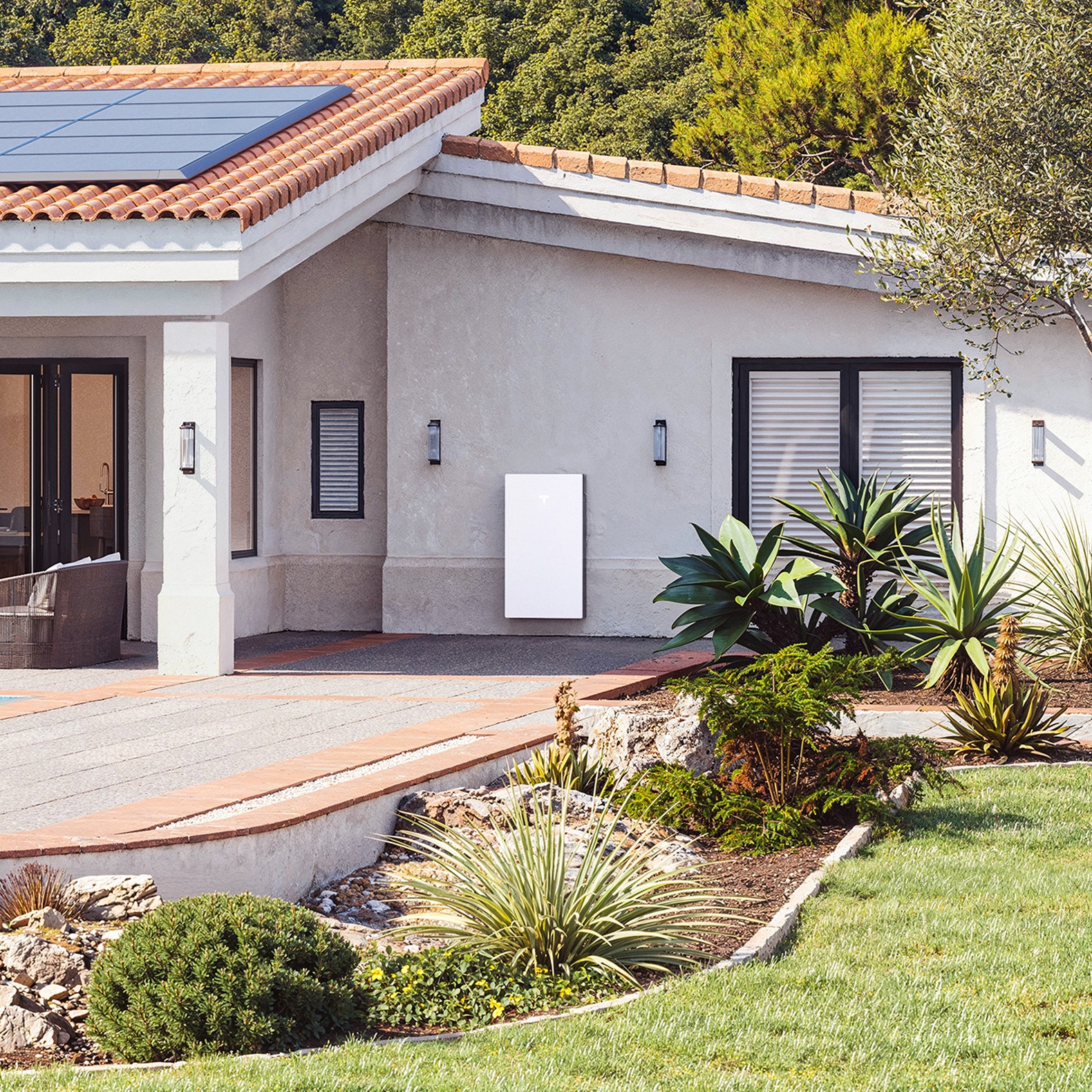
Supply Partners Group has secured a distribution agreement for the Tesla Powerwall in Australia, with inventory expected to arrive in late February and official sales beginning in mid-March 2026.
Under the new agreement, Supply Partners will distribute Tesla Powerwall units and related accessories across its national footprint, as noted in an ecogeneration report. The company said the addition strengthens its position as a distributor focused on premium, established brands.
“We are proud to officially welcome Tesla Powerwall into the Supply Partners portfolio,” Lliam Ricketts, Co-Founder and Director of Innovation at Supply Partners Group, stated.
“Tesla sets a high bar, and we’ve worked hard to earn the opportunity to represent a brand that customers actively ask for. This partnership reflects the strength of our logistics, technical services and customer experience, and it’s a win for installers who want premium options they can trust.”
Supply Partners noted that initial Tesla Powerwall stock will be warehoused locally before full commercial rollout in March. The distributor stated that the timing aligns with renewed growth momentum for the Powerwall, supported by competitive installer pricing, consumer rebates, and continued product and software updates.
“Powerwall is already a category-defining product, and what’s ahead makes it even more compelling,” Ricketts stated. “As pricing sharpens and capability expands, we see a clear runway for installers to confidently spec Powerwall for premium residential installs, backed by Supply Partners’ national distribution footprint and service model.”
Supply Partners noted that a joint go-to-market launch is planned, including Tesla-led training for its sales and technical teams to support installers during the home battery system’s domestic rollout.
Energy
Tesla Megapack Megafactory in Texas advances with major property sale
Stream Realty Partners announced the sale of Buildings 9 and 10 at the Empire West industrial park, which total 1,655,523 square feet.
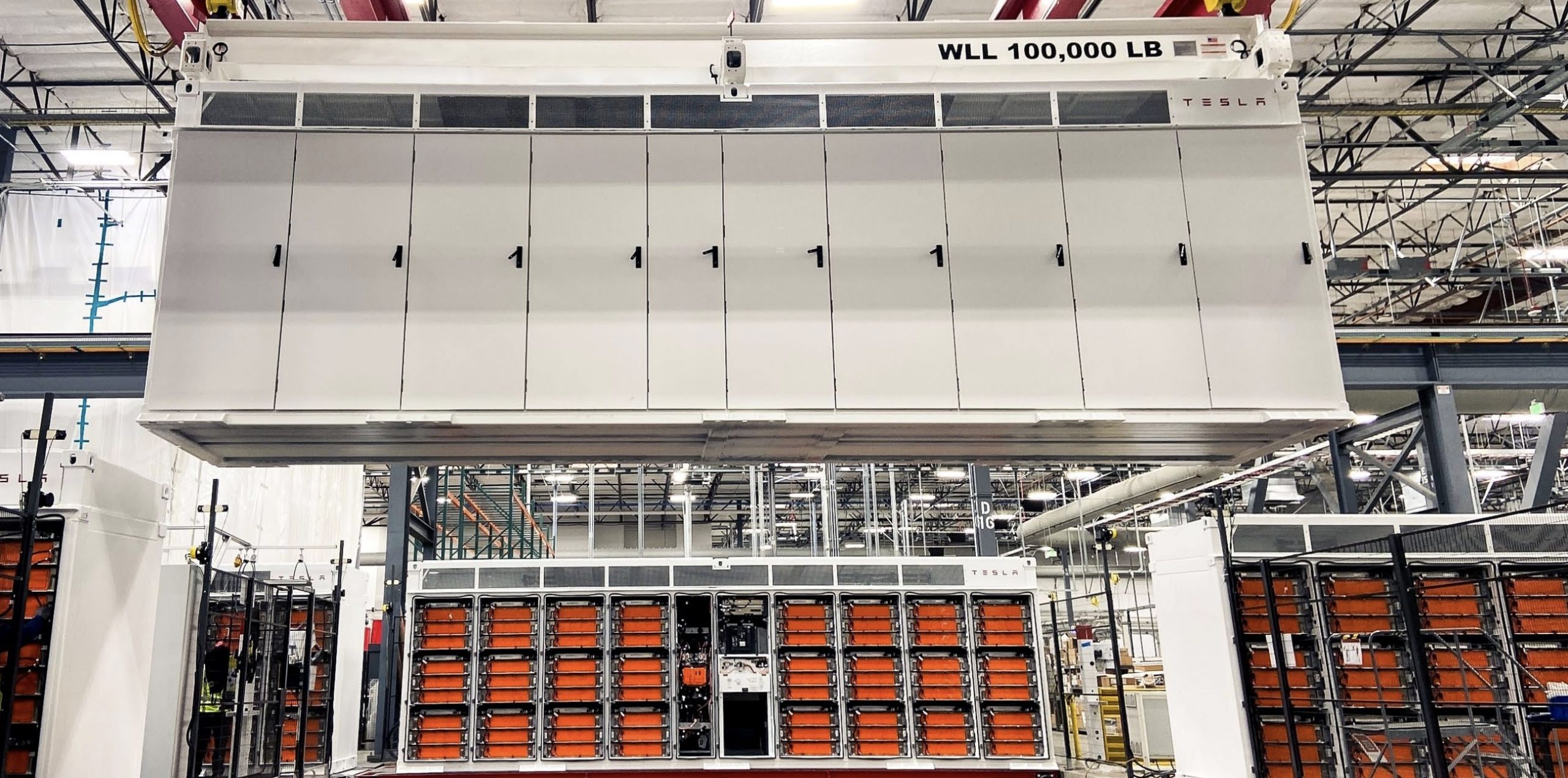
Tesla’s planned Megapack factory in Brookshire, Texas has taken a significant step forward, as two massive industrial buildings fully leased to the company were sold to an institutional investor.
In a press release, Stream Realty Partners announced the sale of Buildings 9 and 10 at the Empire West industrial park, which total 1,655,523 square feet. The properties are 100% leased to Tesla under a long-term agreement and were acquired by BGO on behalf of an institutional investor.
The two facilities, located at 100 Empire Boulevard in Brookshire, Texas, will serve as Tesla’s new Megafactory dedicated to manufacturing Megapack battery systems.
According to local filings previously reported, Tesla plans to invest nearly $200 million into the site. The investment includes approximately $44 million in facility upgrades such as electrical, utility, and HVAC improvements, along with roughly $150 million in manufacturing equipment.
Building 9, spanning roughly 1 million square feet, will function as the primary manufacturing floor where Megapacks are assembled. Building 10, covering approximately 600,000 square feet, will be dedicated to warehousing and logistics operations, supporting storage and distribution of completed battery systems.
Waller County Commissioners have approved a 10-year tax abatement agreement with Tesla, offering up to a 60% property-tax reduction if the company meets hiring and investment targets. Tesla has committed to employing at least 375 people by the end of 2026, increasing to 1,500 by the end of 2028, as noted in an Austin County News Online report.
The Brookshire Megafactory will complement Tesla’s Lathrop Megafactory in California and expand U.S. production capacity for the utility-scale energy storage unit. Megapacks are designed to support grid stabilization and renewable-energy integration, a segment that has become one of Tesla’s fastest-growing businesses.
Energy
Tesla meets Giga New York’s Buffalo job target amid political pressures
Giga New York reported more than 3,460 statewide jobs at the end of 2025, meeting the benchmark tied to its dollar-a-year lease.
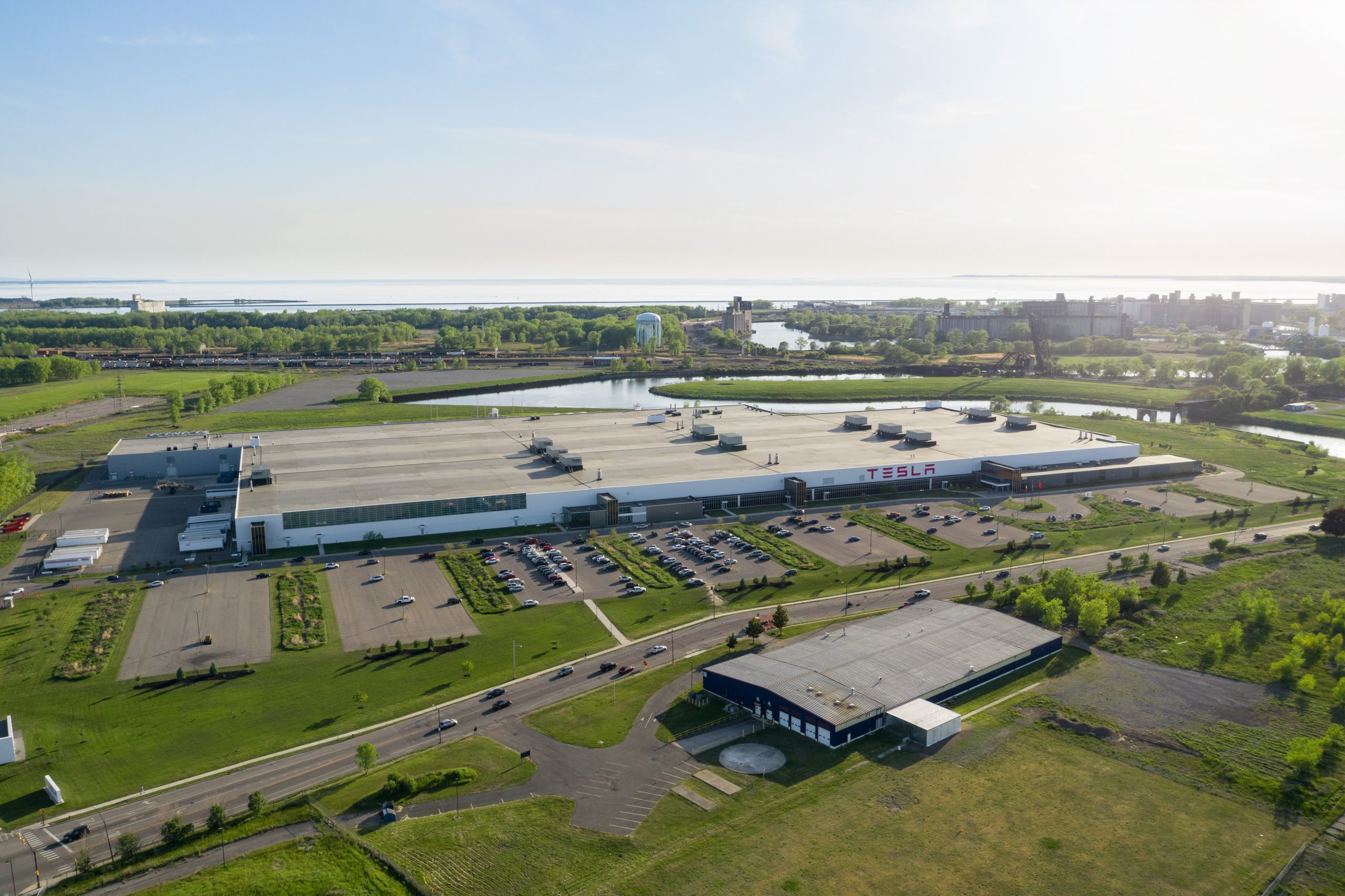
Tesla has surpassed its job commitments at Giga New York in Buffalo, easing pressure from lawmakers who threatened the company with fines, subsidy clawbacks, and dealership license revocations last year.
The company reported more than 3,460 statewide jobs at the end of 2025, meeting the benchmark tied to its dollar-a-year lease at the state-built facility.
As per an employment report reviewed by local media, Tesla employed 2,399 full-time workers at Gigafactory New York and 1,060 additional employees across the state at the end of 2025. Part-time roles pushed the total headcount of Tesla’s New York staff above the 3,460-job target.
The gains stemmed in part from a new Long Island service center, a Buffalo warehouse, and additional showrooms in White Plains and Staten Island. Tesla also said it has invested $350 million in supercomputing infrastructure at the site and has begun manufacturing solar panels.
Empire State Development CEO Hope Knight said the agency was “very happy” with Giga New York’s progress, as noted in a WXXI report. The current lease runs through 2029, and negotiations over updated terms have included potential adjustments to job requirements and future rent payments.
Some lawmakers remain skeptical, however. Assemblymember Pat Burke questioned whether the reported job figures have been fully verified. State Sen. Patricia Fahy has also continued to sponsor legislation that would revoke Tesla’s company-owned dealership licenses in New York. John Kaehny of Reinvent Albany has argued that the project has not delivered the manufacturing impact originally promised as well.
Knight, for her part, maintained that Empire State Development has been making the best of a difficult situation.
“(Empire State Development) has tried to make the best of a very difficult situation. There hasn’t been another use that has come forward that would replace this one, and so to the extent that we’re in this place, the fact that 2,000 families at (Giga New York) are being supported through the activity of this employer. It’s the best that we can have happen,” the CEO noted.
